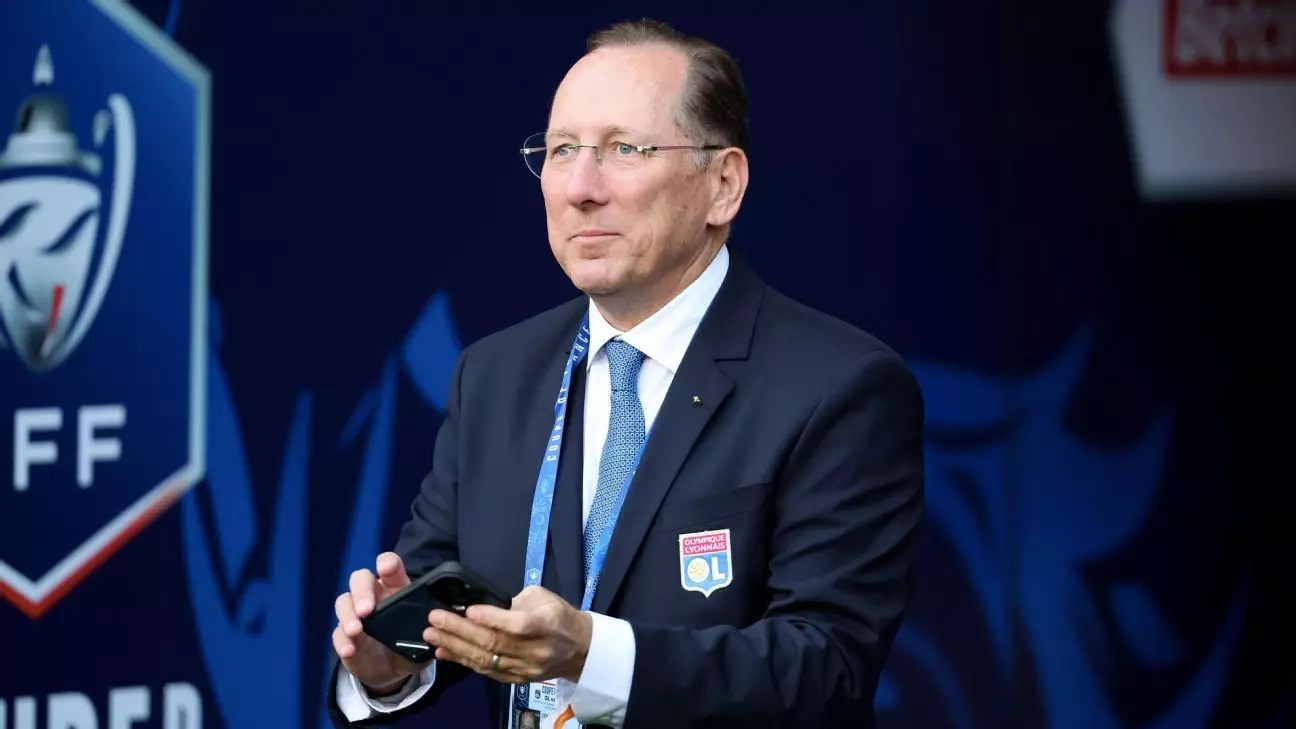John Textor’s recent announcement about stepping back from daily management duties at Lyon after the club’s relegation exposes more than just a footballing setback—it highlights the often-overlooked intricacies and power dynamics that govern European football. Owning a club is far more than funding team operations or investing in player talent; it involves navigating a maze of regulations, politics, and cultural differences that can make even the most resourceful investor vulnerable. Textor’s candid admission that he was better on the pitch than at handling “the politics of France” reflects a recurring theme in football ownership: financial acumen does not always translate seamlessly into regulatory or political competence, especially across international borders.
Demotion and Financial Governance: A Wake-Up Call
Lyon’s relegation, stemming from a ruling by the DNCG, the French financial watchdog, was driven by perceived financial irregularities, despite the club’s substantial liquidity. This situation starkly illustrates the gulf between cash reserves and compliance with financial sustainability standards in European football governance. Textor’s claim that Lyon’s financial position remains strong is commendable but misses the point that football regulators prioritize consistency, transparency, and long-term financial guarantees over short-term liquidity. The relegation underscores how clubs can be penalized not just for insolvency but for failing to comply meticulously with governance frameworks—which may appear bureaucratic but are essential for the sport’s fiscal health.
Leadership and Cultural Adaptation: American Capitalism Meets French Football
Textor’s reflection on his struggles with adapting to French football’s financial and political ecosystem is particularly telling. Coming from an American capitalist mindset, where business operations often follow clear hierarchies and outcome-driven models, Textor faced a reality where relationships, tradition, and regulatory subtleties govern decision-making. This cultural clash, while understandable, highlights a critical weakness for global investors—underestimating the importance of local knowledge and political navigation within the football industry. His decision to delegate more responsibilities to other shareholders within Eagle Football Group is a pragmatic move, acknowledging that success in football ownership requires not only capital but also nuanced management tailored to local contexts.
Recalibrating Focus: Embracing a Multi-Club Ownership Approach
Textor’s pivot towards concentrating on the broader Eagle Football Group portfolio, especially his Brazilian side Botafogo, signals an evolution in his football strategy. Having recently divested a significant stake in Crystal Palace, he appears set to rethink his approach in the UK market, seeking a new acquisition that can complement his existing assets. This multi-club ownership model—leveraging partnerships between clubs across different leagues and countries—has become a popular strategy for mitigating risks and maximizing synergies such as shared scouting networks, commercial partnerships, and player development pathways. It reflects a sophisticated understanding that football investments should be diversified and interconnected to withstand the volatility inherent in singular club ownership.
Redefining Success Beyond League Positions
Despite the immediate disappointment of relegation, Textor remains proud of Lyon’s recent achievements, including Europa League qualifications. This perspective encourages a broader appreciation of football club performance that goes beyond league tables. Stability in competitive participation, financial sustainability, and strategic asset management can serve as more reliable indicators of long-term success. Textor’s emphasis on the club’s liquidity and passing UEFA’s financial sustainability review—contrasted with the DNCG’s decision—raises important questions about harmonizing regulatory criteria across European jurisdictions and the challenges owners face when managing clubs under divergent national standards.
The Importance of Accountability and Learning in Football Ownership
Perhaps the most critical takeaway from this episode is Textor’s willingness to acknowledge mistakes and reorient his approach. Football ownership is not a static endeavor; it demands continuous learning, adaptation, and accountability. By admitting shortcomings and entrusting capable partners within Eagle Football Group to handle issues he struggled with, Textor sets an example of responsible stewardship rather than retreat or denial. This kind of leadership—balancing ambition with humility—could be a template for future owners who wish to navigate the complex regulatory landscapes of football while fostering sustainable growth.
Ultimately, Textor’s experience with Lyon serves as a stark reminder: in modern football, financial muscle must be matched with political savvy, regulatory compliance, and cultural sensitivity. Failure to balance these factors can lead to consequential setbacks—no matter the resources at an owner’s disposal.


Leave a Reply